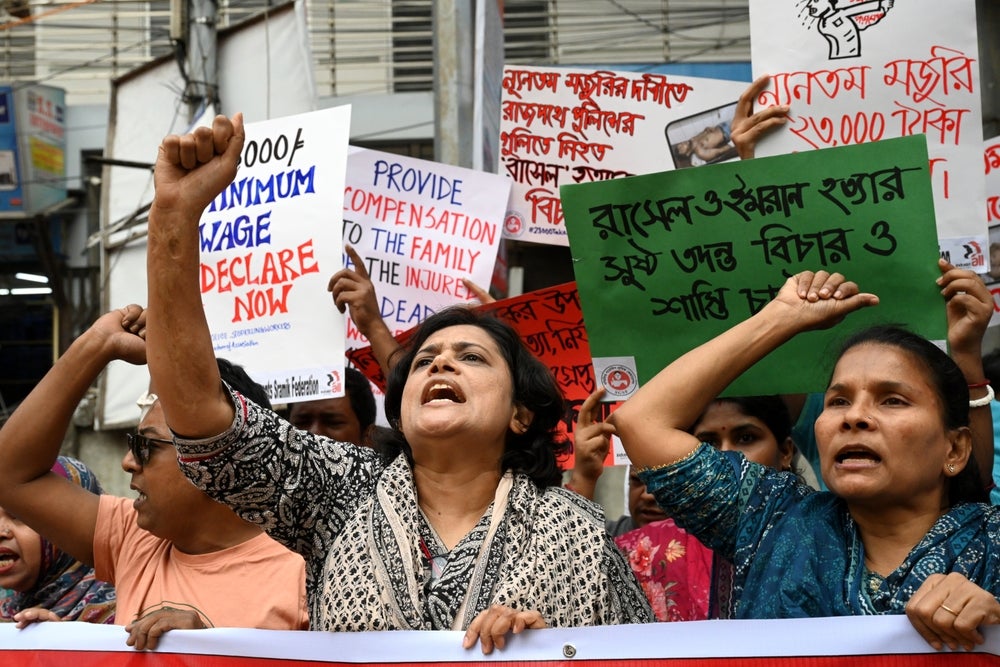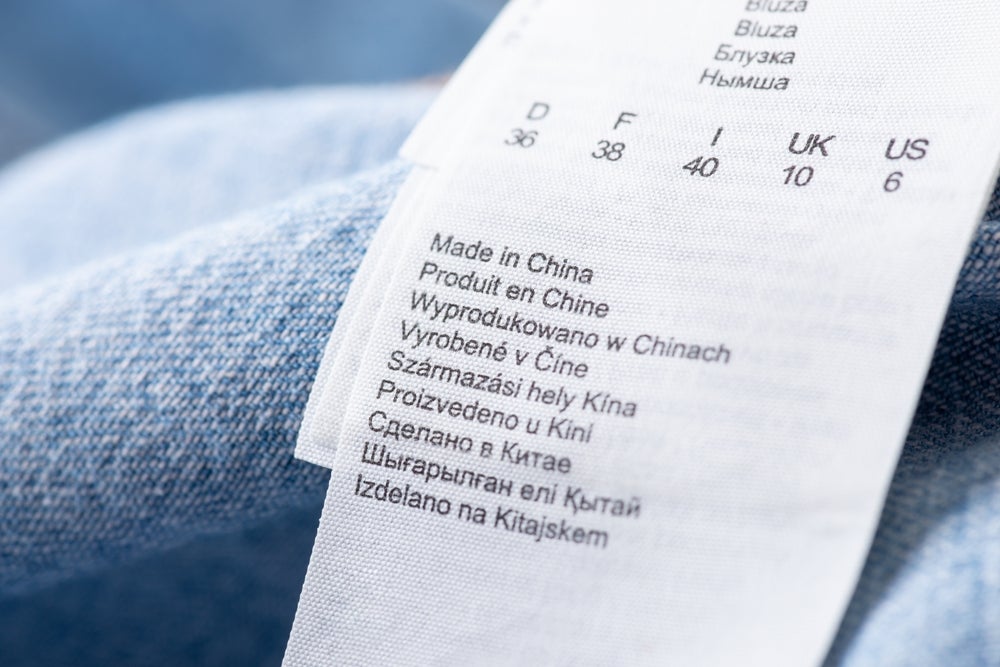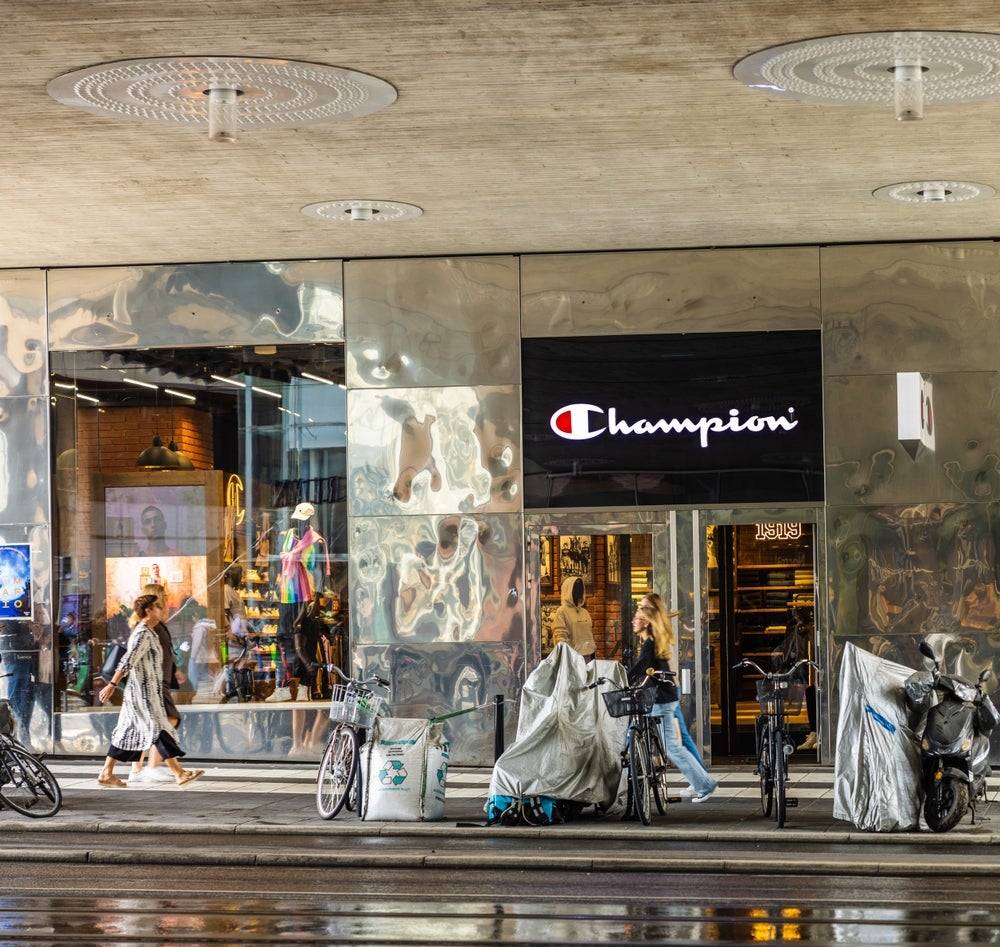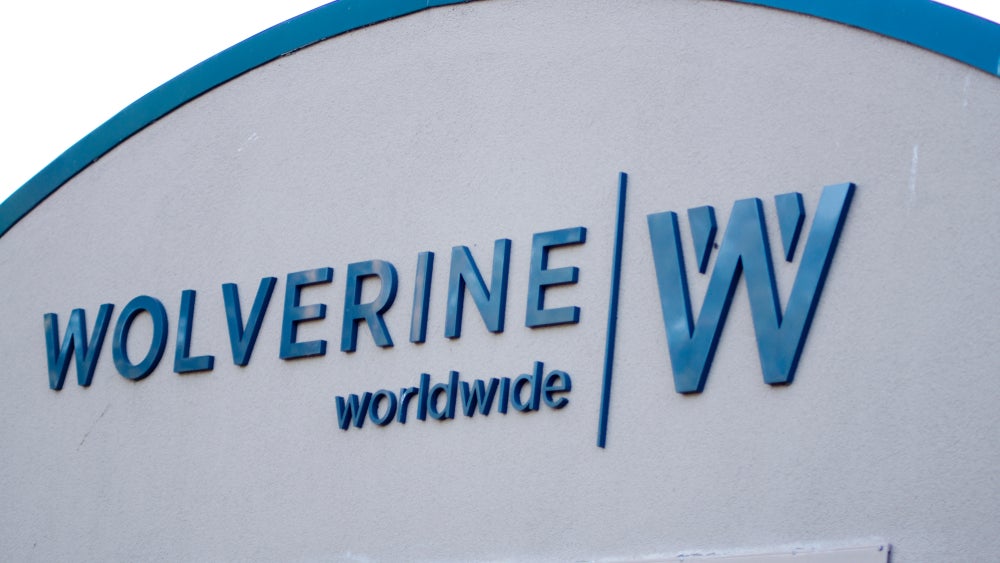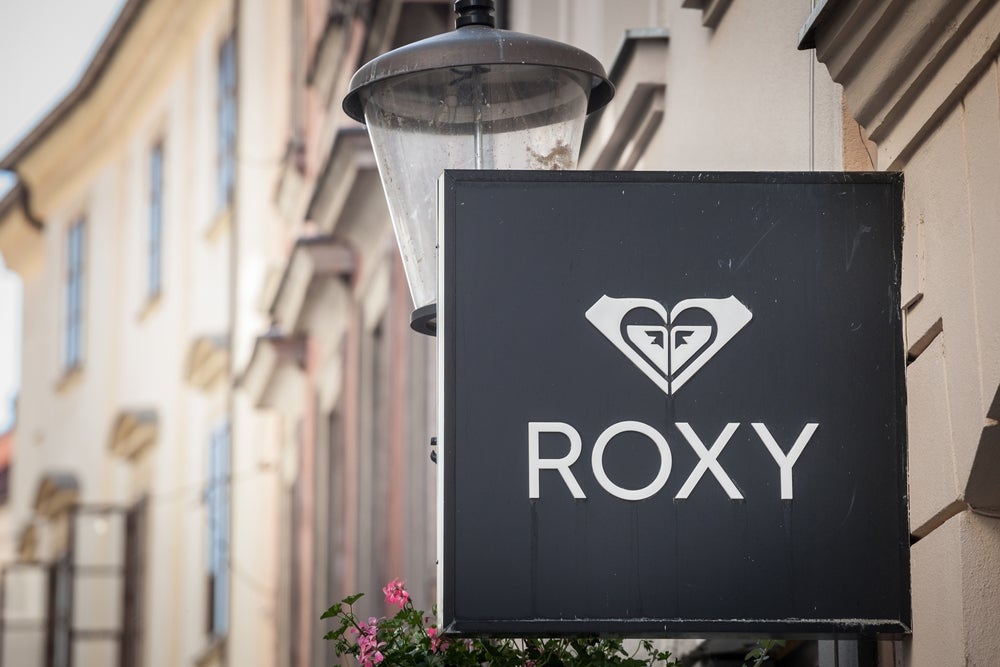Last week Bangladesh factories received official direction to increase the minimum wage for garment workers to TK12,500 ($114) a month, the first wage hike in five years.
This is a 56.25% rise on the previous minimum garment worker wage but is still substantially lower than the TK20,393 ($184.6) that was initially demanded by worker representatives on the Bangladesh Minimum Wage Board.
The new minimum wage is however, higher than the TK10,400 ($184.6) proposed by the garment factory owners’ representative, Md Siddiqur Rahman.
Some garment worker unions remain unhappy with the rate announced with news publication Al Jazeera reporting that unions have demanded TK23,000 ($208) and protests have continued since last week’s announcement.
Local news site The Daily Star claims garment worker Jalal Uddin died from his injuries this weekend after police targeted striking garment workers last week. The publication claims that at least 30 workers were injured in the clash.
Hasina is said to have made the comments at a meeting of Bangladesh’s ruling Awami League party last week (9 November), saying: “I would say to the garment workers: they have to work with whatever [level to which] their salary is increased, they should continue their work. If they take to the streets to protest at someone’s instigation, they will lose their job, lose their work and will have to return to their village.”
The Clean Clothes Campaign has previously argued that Bangladesh garment workers have a right to protest following what it describes as employers' "meagre" minimum wage proposal and calls on global fashion brands to confirm their commitment to fair pricing.
The BGMEA, which had not responded to Just Style's request for comment at the time of writing, has previously warned global fashion brands and retailers can expect to see increased prices on readymade clothing sourced from Bangladesh after the minimum wage increase.


